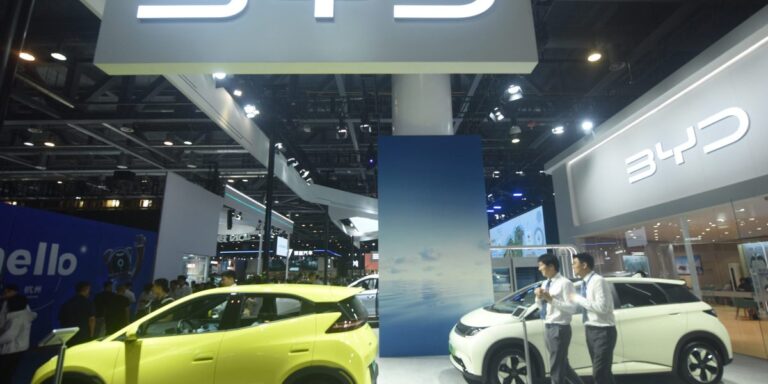European tariffs on Chinese-made EVs are already hurting business confidence among Chinese companies, even though the new taxes have yet to come into effect.
A recent survey by China Economic Services and the China Chamber of Commerce in the EU found that tariffs have made 82% of Chinese auto and industrial chain companies less confident about investing in Europe in the near future, 83% said their European partners are unsure about working with Chinese companies, and 73% reported a drop in sales in Europe.
The survey targeted more than 30 companies and institutions involved in new energy vehicles, including battery electric vehicles and plug-in hybrid vehicles.
The report said Chinese auto companies are facing a “challenging business environment,” with the majority of companies surveyed agreeing that “escalating trade tensions” are politicizing economic activity.
Construction Trade War
The European Commission said last week it would impose tariffs of up to 38% on Chinese-made electric vehicles starting next month, a decision that follows an anti-subsidy investigation launched in October last year.
The decision could set off a broader trade dispute between China and Europe, with the EU also investigating several other industries, including steel, wind turbines and medical equipment.
Chinese automakers are calling on Beijing to raise tariffs on imports of internal combustion engine vehicles from Europe.
The Chinese government recently launched an anti-dumping investigation into European pork, adding to a similar investigation launched into European brandy earlier this year.
How will Chinese EV makers respond?
China’s electric vehicle sector has emerged as a major driver of the country’s economy as companies such as BYD and battery maker CATL become major players in their respective sectors. Chinese manufacturers deny accusations that their success is due to government support.
Chinese electric vehicle makers could avoid the tariffs by setting up manufacturing bases in Europe: BYD and fellow Chinese automaker Chery have committed to building new factories in Hungary and Spain.
The chamber’s survey suggests more Chinese automakers may be considering expanding production in Europe: 64% said they plan to set up manufacturing bases in Europe within the next five years, even though many companies reported a decline in confidence about investing in the region.

